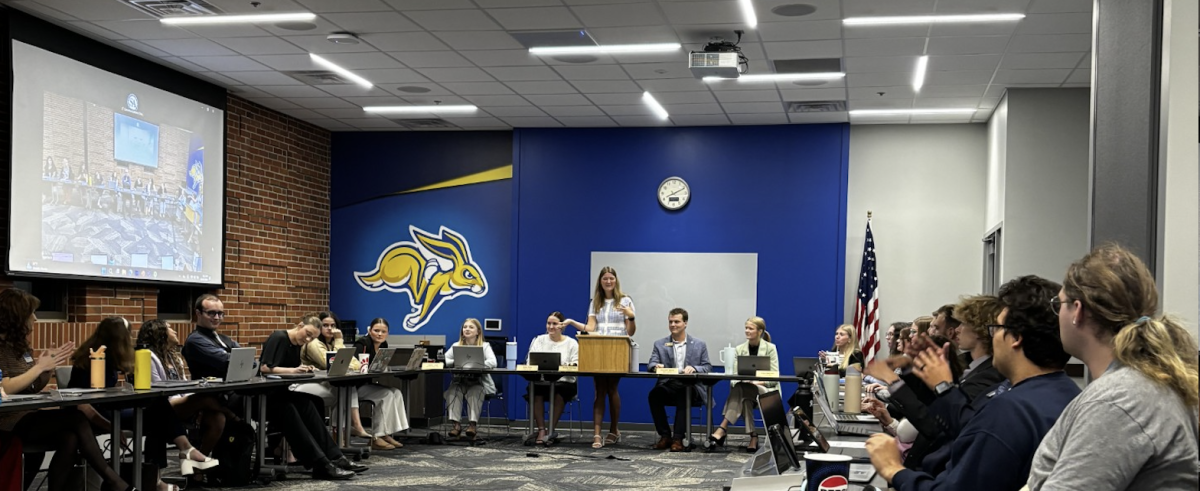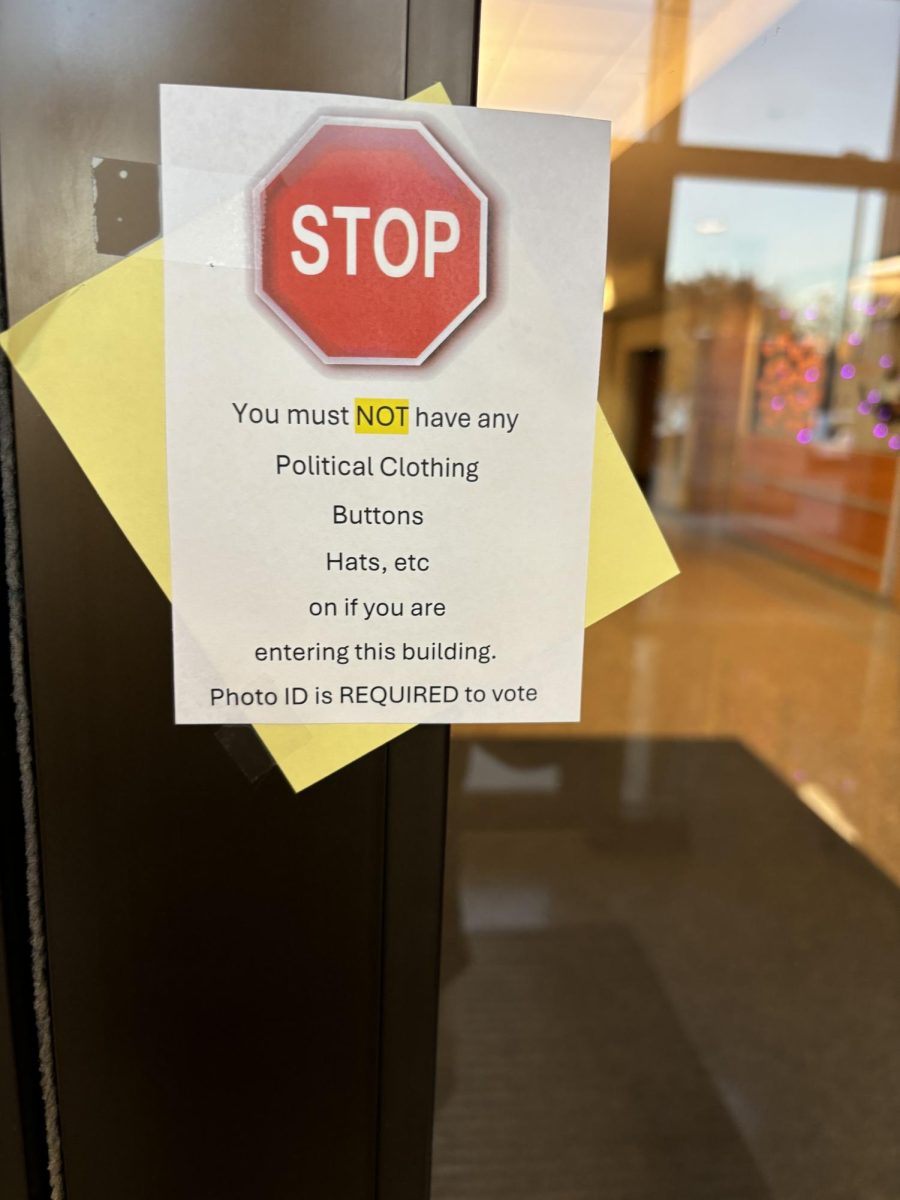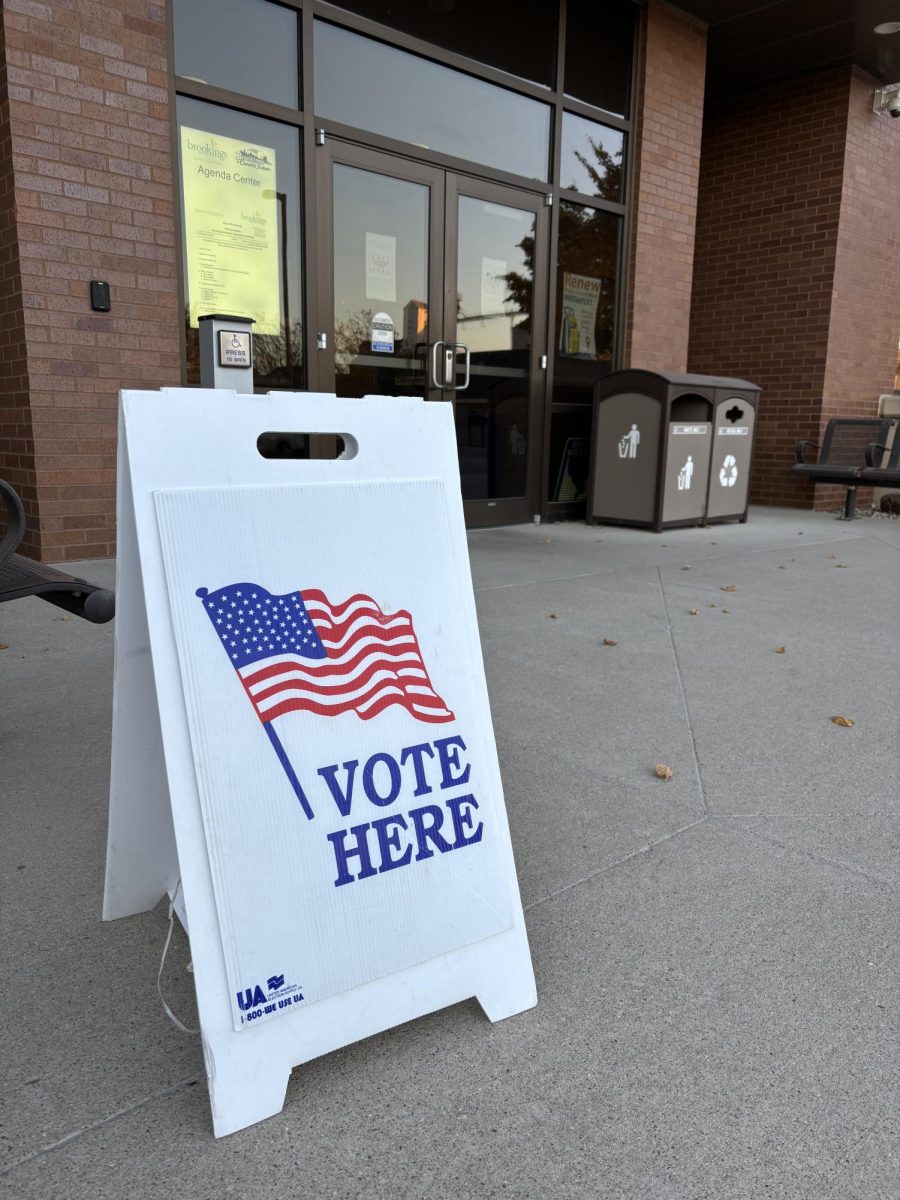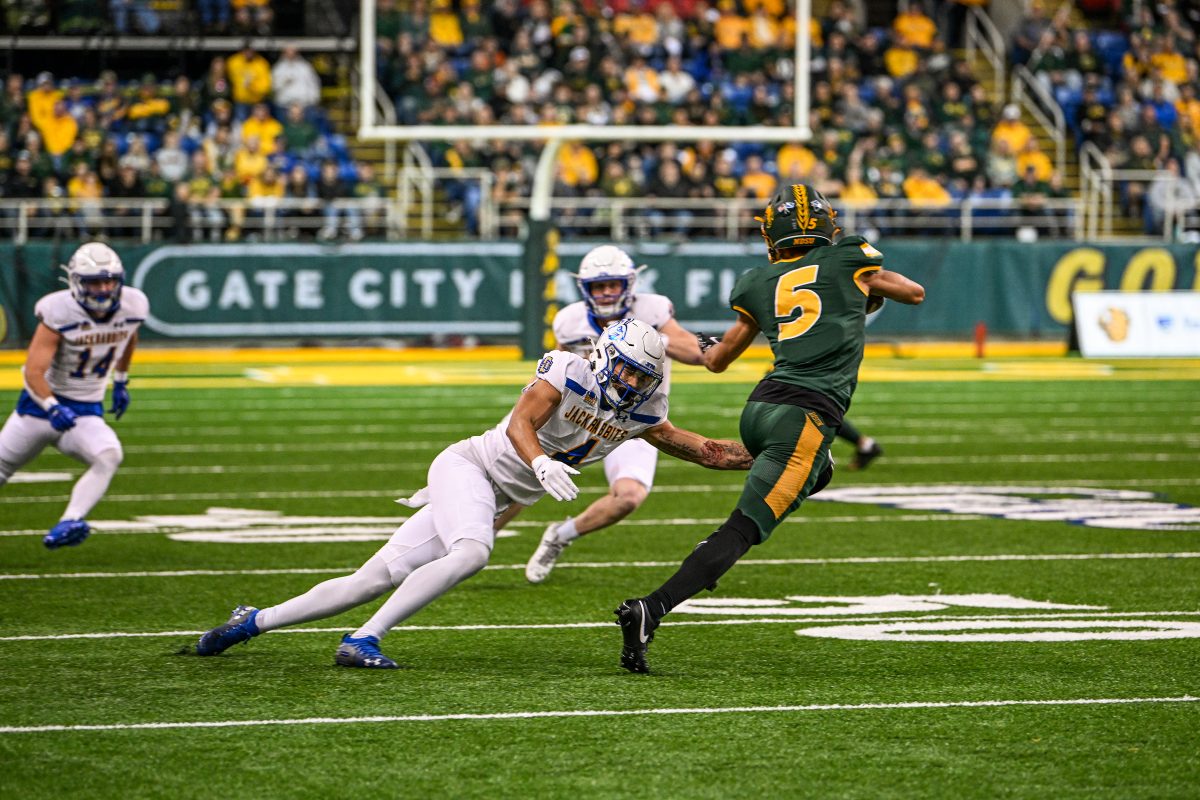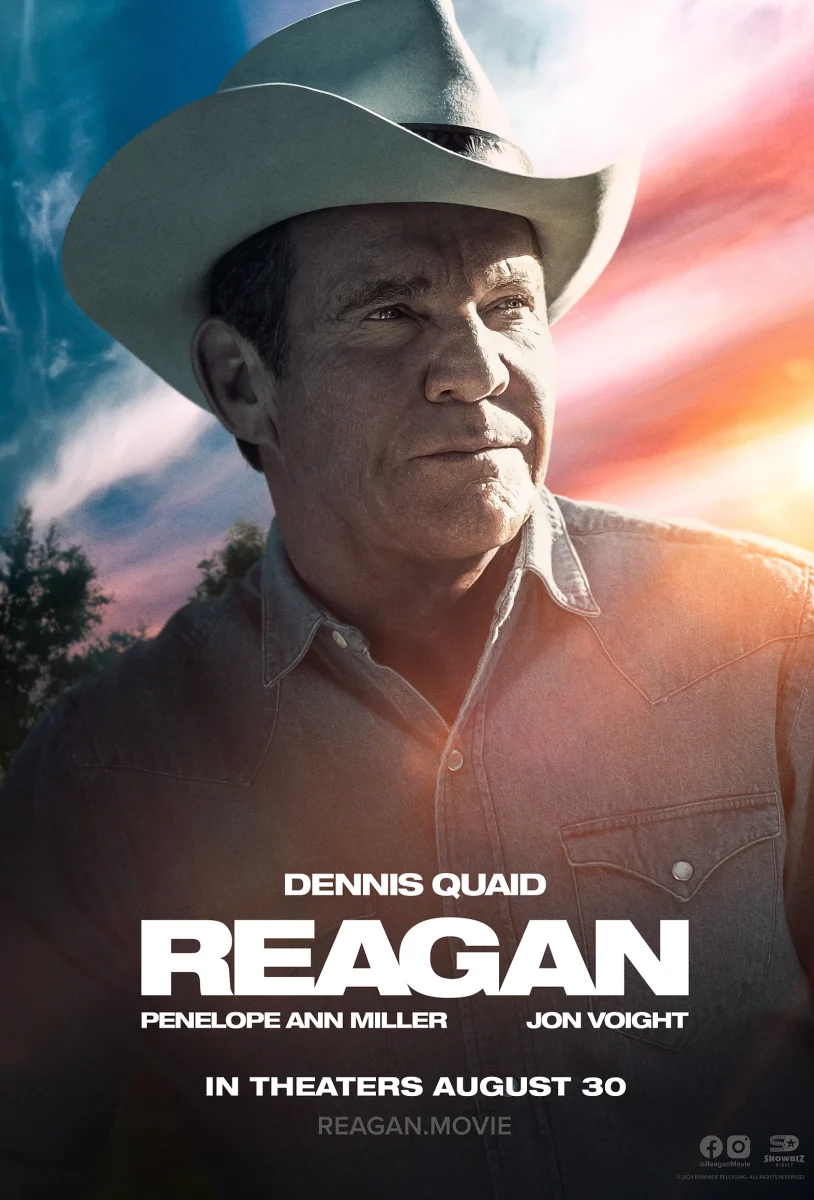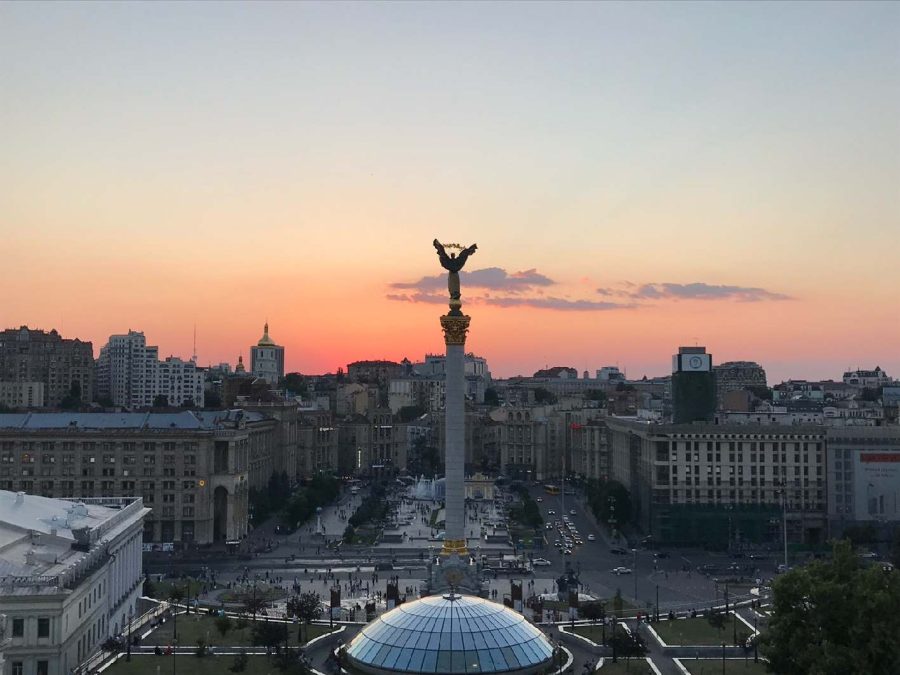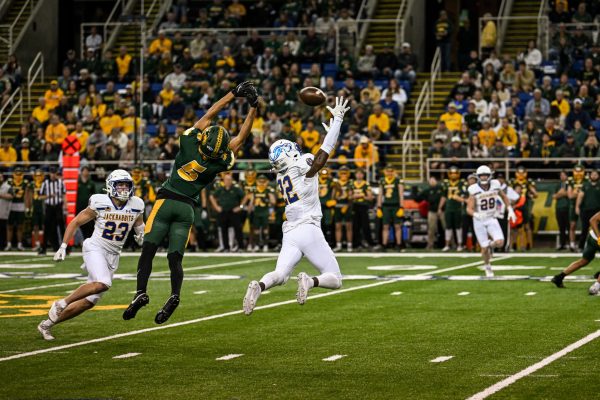ISSUE: The Russia-Ukraine conflict is bad, but probably not worth a war
The sun sets on Independence Square in Kyiv, Ukraine. In 2014, Independence Square was one of the sites of violent protests that shook the nation.
February 15, 2022
Over the last decade, Ukraine has been nothing if not one of the world’s most interesting spectacles for those who knew where to look. In 2014, President Viktor Yanukovych was ousted from power after abandoning partnerships that would have moved Ukraine closer into alignment with the European Union and distanced themselves from the Russian sphere of influence. According to the BBC, Yanukovych steered Ukraine toward closer ties with the EU during his tenure, but interestingly refused to finalize agreements in late 2013. The move away from the west and back toward Russia sparked considerable outrage in the nation of over 40 million people, many of whom are ethnic Russians. In the first months of 2014, protests rocked Ukraine’s capital, Kyiv, and Yanukovych fled for safety, condemned as a traitor.
Ukrainians caught a glimpse into the weakness and corruption of their elected government. 2014 saw the election of President Petro Poroshenko, a Ukrainian oligarch and one of the richest people in the country. In 2018, Ukrainians once again had enough of their leaders and in one of the strangest strokes of populism ever, the people of Ukraine elected TV star and comedian Volodymyr Zelensky. He is most well-known for his role as a teacher in the show “Servant of the People,” where his character gets elected president and battles government corruption. Zelensky ran under the Servant of the People party, the same name as the party his character on the show ran under.
Now Zelenksy is being tested for real. Less than three years into his presidency, the Russian military sits near Ukraine’s northeast border. Ukrainians and the western world fear an invasion that could resemble the occupation of Ukraine’s Crimean Peninsula, which the Russian Federation annexed in 2014.
Some analysts speculate Russia sees a unique opportunity: America is likely to be hesitant about re-entering foreign conflict following the controversial removal of forces in Afghanistan, and the public support for Zelenksy’s party in Ukraine has been in free-fall while pro-Russian sentiment has reportedly been on the rise. Furthermore, talks of Ukraine joining NATO, the North Atlantic Treaty Organization, may have Russia convinced that the time to act is now before the western alliance inches closer to its population centers.
The U.S. can’t be sure what Russia will ultimately decide to do. On Tuesday, President Joe Biden said a Russian invasion is “still very much a possibility.” Biden has pledged to “rally the world to oppose” Russian aggression and to enact even more severe economic sanctions than were enacted following the Crimea invasion. At this time, it doesn’t seem like the White House is willing to send troops to the front; after all, doing so would be unpopular among voters and could even risk another Afghanistan-scale military blunder.
The effects a full-scale Russian invasion would have on Ukraine and on the world are unclear. The Ukrainian people aren’t necessarily living under a blossoming democracy under the government that’s ruled since Ukraine’s August 24, 1991 independence from the Soviet Union. Prominent figures on the right, including Fox News host Tucker Carlson, have called for the U.S. to remove itself from the conflict and to focus on domestic problems before looking overseas.
The rebuttal others have raised: does allowing Russia to have its way with Ukraine echo the appeasement strategy Neville Chamberlain used as Germany conquered Poland? If Ukraine falls to Russia, could other former Soviet satellite states be next? That’s probably unlikely, and perhaps even impossible to accomplish in this age. But the fear that giving Russia an inch will lead to them taking a mile is warranted. After all, their relatively unopposed march into Crimea helped set the course for what’s happening now.
As young people, we at The Collegian are hesitant to send another generation of U.S. military soldiers into conflict that could destabilize Eastern Europe (more so) and morph into another endless conflict. While we have strong objections to the aggressive moves of actors like Russia, we also must ask ourselves if this is a battle worth fighting. Do we want our children going off to serve in Ukraine? Maybe it’s unavoidable. Hopefully not.
Russia claimed Tuesday it’s now de-escalating the situation and is moving troops away from the border, though this has yet to be confirmed by other agents.
Perhaps the political greenhorn Zelensky managed to save his country from invasion; or maybe this is just the calm before the storm.



